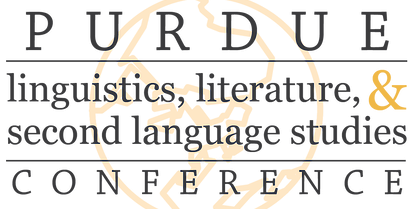Description
Since the end of Communism in 1989 and joining the European Union in 2007, Bulgarians have experienced much greater mobility and access to the global community. Despite this more global perspective, Bulgarians maintain a strong sense of national identity. Given this interplay between global and national identities, Bulgaria is an apt location to conduct this ideological research. Using a combination of ethnographic observations (June-July 2018) and semi-structured interviews with bilingual Bulgarians in Sofia, this study examines how large-scale phenomena like nationalism and globalization are found in the micro-scale interactional construction of identity. Results show that a great deal of ideological work goes into the construction of these intersectional identities in Bulgaria. English use authorizes a global identity while Bulgarian and its Cyrillic orthography authenticate the national identity. This study addresses the role that language plays in how individuals construct both national and global identities. The effects of globalization actively influence language ideologies and affect how Bulgarians interactionally construct their own identities and create some balance between local/global or national/international forces. This paper addresses how these phenomena of nationalism and globalization are utilized in the linguistic ideologies that motivate the construction of individuals' identities in Bulgaria.
Start Date
9-29-2019 11:30 AM
Recommended Citation
Norman, Chelsey, "Linguistic Ideologies in the Performance of Bulgarian Identity" (2019). Purdue Linguistics, Literature, and Second Language Studies Conference. 4.
https://docs.lib.purdue.edu/plcc/2019/papers/4
Included in
American Studies Commons, Classics Commons, Comparative Literature Commons, Digital Humanities Commons, English Language and Literature Commons, Feminist, Gender, and Sexuality Studies Commons, Medieval Studies Commons, Modern Languages Commons, Modern Literature Commons, Other Languages, Societies, and Cultures Commons
Linguistic Ideologies in the Performance of Bulgarian Identity
Since the end of Communism in 1989 and joining the European Union in 2007, Bulgarians have experienced much greater mobility and access to the global community. Despite this more global perspective, Bulgarians maintain a strong sense of national identity. Given this interplay between global and national identities, Bulgaria is an apt location to conduct this ideological research. Using a combination of ethnographic observations (June-July 2018) and semi-structured interviews with bilingual Bulgarians in Sofia, this study examines how large-scale phenomena like nationalism and globalization are found in the micro-scale interactional construction of identity. Results show that a great deal of ideological work goes into the construction of these intersectional identities in Bulgaria. English use authorizes a global identity while Bulgarian and its Cyrillic orthography authenticate the national identity. This study addresses the role that language plays in how individuals construct both national and global identities. The effects of globalization actively influence language ideologies and affect how Bulgarians interactionally construct their own identities and create some balance between local/global or national/international forces. This paper addresses how these phenomena of nationalism and globalization are utilized in the linguistic ideologies that motivate the construction of individuals' identities in Bulgaria.


